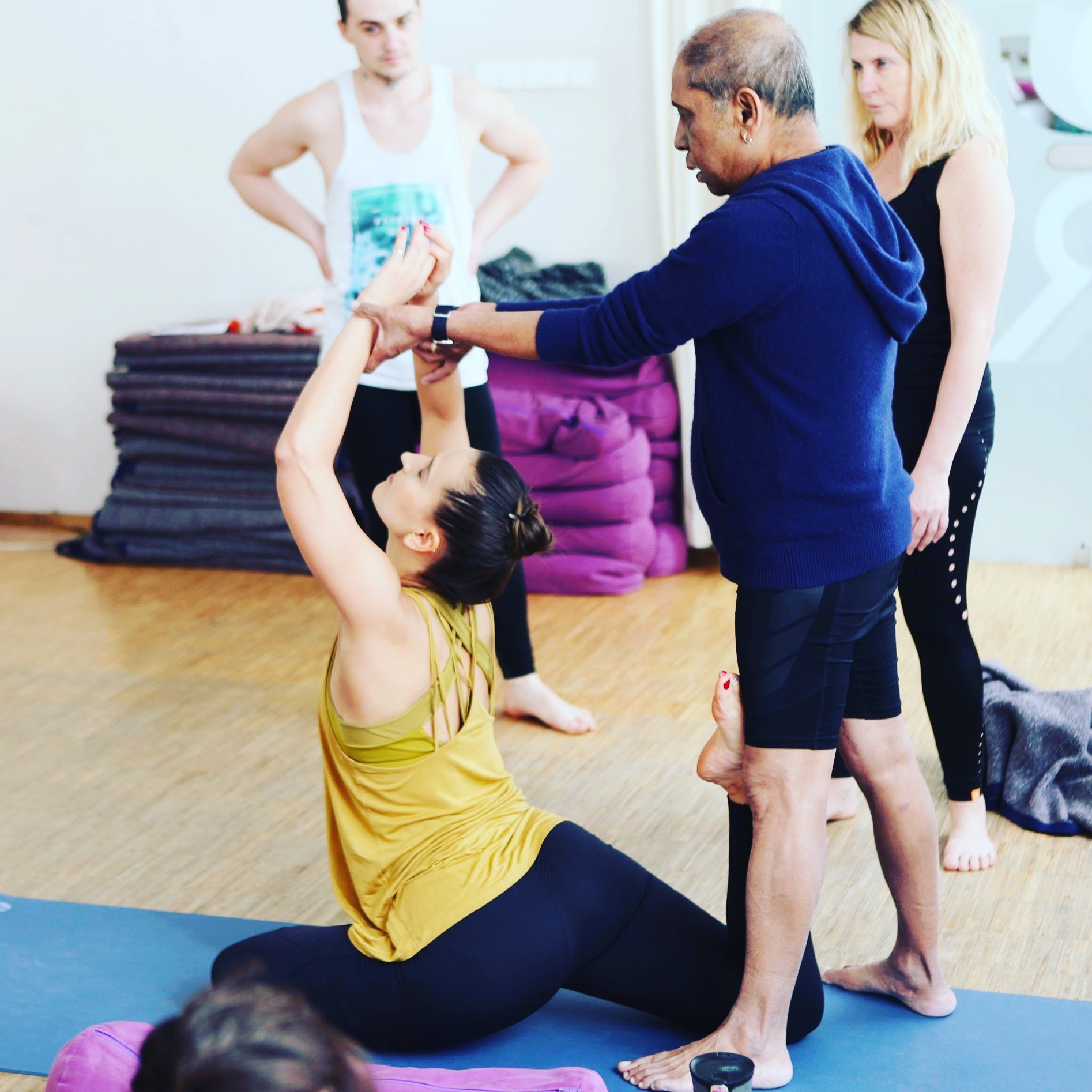Manju Jois, the most positive yoga teacher
A few days ago, I finished my fifth workshop with one of my favourite Ashtanga Yoga teachers. As both a yoga student and teacher myself, I strongly feel we need to be constantly inspired to keep our own practice and teachings on the highest level. One teacher training course will never make a great yoga teacher, it is a lifetime journey we have to commit to, and I am on it all the way and not turning back.
Manju Jois is the son of K. Pattabhi Jois, and passes on his father’s teachings in the most positive way. He often mentions, that he is not a guru, but just a messenger, passing on what he knows. Manju always greets you with a big smile on his face, already making you feel better. He laughs all the time, often at his own jokes. Manju believes yoga should not be too serious, but also fun. Yoga should bring happiness and joy, making our life better, and us - better people. He says that yoga is not complicated, it is very simple, it is the people who make it too complicated.
I often need to be reminded of this, as I sometimes become a bit too serious about my practice. Manju says that in the west, people are so stressed, worrying about everything, also about yoga, even though it’s the yoga that is supposed to help us deal with stress. He says that western yogis, if they skip a day of practice, they feel so much guilt, and worry about it all day, as if it were the end of the world. If a yogi in India skips a day of practice, he knows that’s okay, because he will practice tomorrow.
He shares with us pranayama breathing techniques and Vedic mantra chants. We practice these every day of the workshop, after the asana practice. This helps ground and balance us, as after only asana practice we are too energised. Manju shows us how to listen to our body each day and modify our practice depending on our mood and energy. The practice should never be only asana, sometimes you can even skip asana practice and concentrate on chanting on pranayama.
Manju tells us that the practice will show us what we are doing right or wrong and what we should change. He advises against too drastic changes, like for example, a person eating meat all their life decides to become a vegan overnight. This will not make you healthy, but even ill. All changes should be brought in gradually, in small steps. We will feel in our everyday practice what we should change, like eating too late at night will make us feel stiff and heavy in the morning, eating meat might also make us feel heavy and we will notice how long it will take to digest. The practice will help us notice how everyday things change our practice and impact our day. Not getting enough sleep, drinking one glass of wine too many or just binge watching your favourite show might have a very strong impact on you the next morning. The practice helps us learn how to find the balance and take control of our lives.
Manju also believes that eating meat of animals who have lived in cruelty and died in terrible stress will bring negative energy to you. He recommends a diet full of plant protein, like many beans, chickpeas, lentils etc. He has been raised in a vegetarian family and has never eaten meat in his life. Even when he once tried eating fish, his body did not accept it as food.
He recommends keeping our practice not too long, 1h 15 to 1h 30 minutes maximum. He says that maintaining a very long practice over time is like overcharging a battery. It will make us weak. We should feel energised and ready for a full day after our practice, and not in the need for a nap right after practice.
He tells us to teach also in a simple way, not giving too much information to beginner students, not to overwhelm them. The practice should be kept simple, bringing joy and wellbeing both to new and advanced students alike.
We should also not share some information to students who are not yet ready for this. He tells us of his student, who was worrying so much about his Mula Bandha that he was not really able to practice properly. Manju says that the bandhas will come automatically as long as we breathe properly through the practice. So, let’s just „practice and all is coming”. Although Manju jokes about these words being misinterpreted by many students of his father’s. Everyone claims to know what Pattabhi Jois meant by these words, when Manju says he didn’t really mean anything too serious.
After every workshop with Manju, I feel I can distance myself a bit from all this yoga seriousness and just step on my mat each day and do what I can.


